“You can create your own measurement setup in our lab, and that makes it unique”
Tenure tracker Sanli Faez on the Physics of Light in Complex Systems laboratory
Last December, Professor Allard Mosk (Physics) and his research group moved from the University of Twente to the Ornstein Laboratory at the Uithof. At Utrecht University, he had the opportunity to set up a new research group called Physics of Light in Complex Systems together with Dr. Sanli Faez. The laboratory is now almost fully equipped, and Faez talks about it enthusiastically.
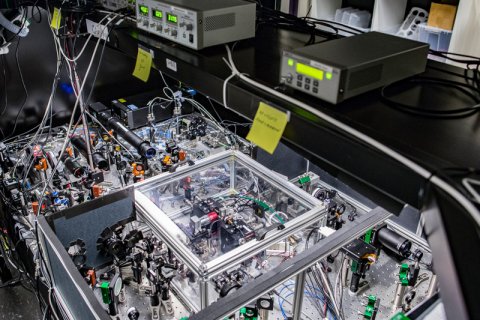
“In our lab, we use light as a tool to study complex systems, such as the processes that take place within biological tissue. Both the absorption and the refraction of light provide useful information about the characteristics of the tissue. By combining that with nanoscopy, in which a microscope detects motion at the nanoscale, we can conduct quick measurements of tiny particles. The applications are ubiquitous, so we work together with many different research groups. For example, we recently studied how to detect and accurately count very small particles, called exosomes, that float in urine and blood and might have a role in cancer metastasis. This information is very valuable for medical diagnostics.”
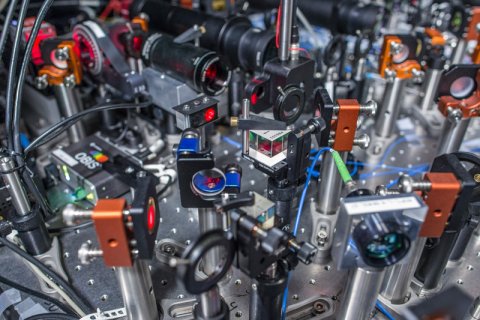
Precision work in the dark
The measurement setups, which consist of a variety of lenses, mirrors and lasers, are impressive to see. Sometimes, in order to conduct the measurements as accurately as possible, the researchers conduct them in a sealed room. “Even the computers that process the data are located outside the measurement room, to keep the conditions inside the laboratory as stable as possible. That has the added advantage that you get to see some daylight during the experiments.”
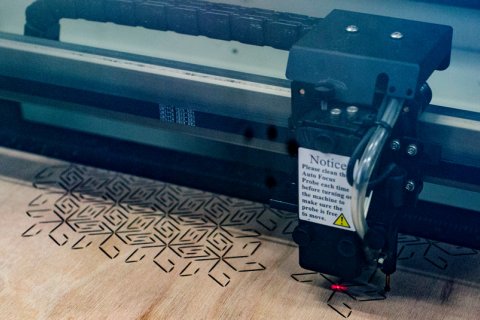
Fablab
In the ‘fabrication laboratory’, the researchers have the opportunity to make parts of their own measurement installations. It is a prototyping workshop with most necessary materials and equipment. Faez: “I can regularly be found drilling or cutting in our Fablab. That keeps the work active and interesting.” He is also proud of the recently purchased 3D printer that occupies a place of honour in his office. “This printer is able to print the framework for a tiny microscope, for example. Just add a lens, and the microscope is complete.” But the Fablab is not just the pearl of this one research group. “The Physics department has contributed to this investment and it is open to all students and researchers. So don’t hesitate to come by!”
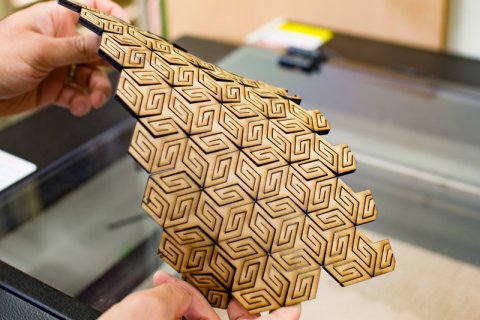
Small scale
The research group thinks in terms of small-scale experiments, which does not necessarily mean that they are easy to execute. The advantage to small scales is that the researchers can easily change their measurement installation when they have a new idea. “Thanks to our Fablab, we can solve some of our technical problems in-house. With the help of our technicians, we can quickly produce new parts if we need them. That means we can start or re-start measurements quickly.”
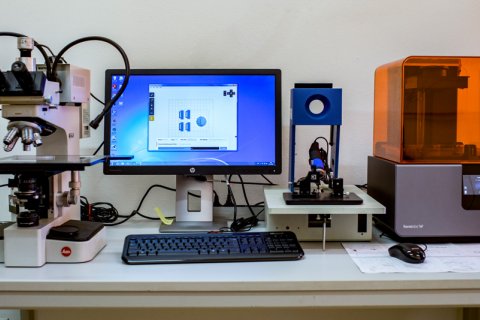
Open atmosphere
The research group consists of four PhD students, one postdoc and three technicians, plus Mosk and Faez. Everyone enjoys the collaboration within the team. “We are convinced that you work better and more efficiently when you work together. We respect each other’s academic freedom, but we also keep each other informed.” A technician immediately confirms this open atmosphere as he walks in during the interview to bring Faez some parts. “Everyone’s role is equally important for the group”, Faez explains.
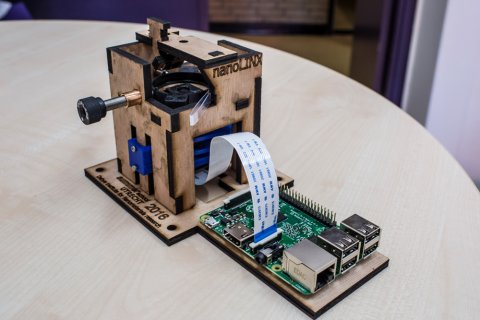
Own project
The team also has created room to develop talent. Physics Bachelor’s students can regularly be found in the lab, setting up and conducting their own experiments. “I think it’s important for them to work with their hands, to create something on their own, and to mark their contribution. For example, a student recently designed a DIY (do it yourself) microscope that we used during the Debye Summer School.”
Ambitious
Thanks to a Vici grant previously awarded to Mosk, and the subsidy that Faez was recently awarded from FOM, the group continues to grow. In October, two PhD students and a postdoc will start on the design of an ultrasensitive optical measurement instrument that will enable high speed measurements on extremely small particles for an unlimited time. Faez also hopes to be able to add a more powerful laser to the laboratory in the near future in order to provide even more possibilities for exciting new research.

